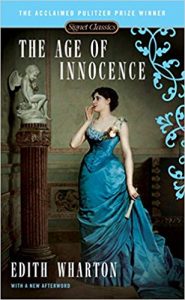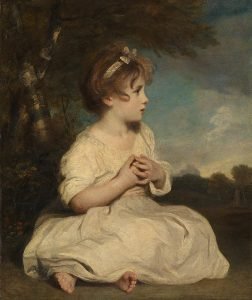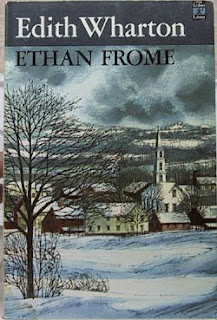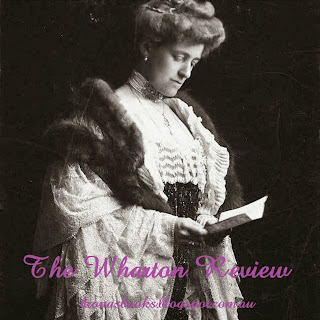Ethan Frome: “I had the story, bit by bit, from various people, and, as generally happens in such cases, each time it was a different story.”
I was so pleased to finish my Wharton book, Ethan Frome, for Brona’s The Wharton Review well ahead of time! Fortunately the 150-ish pages of the book made it a relatively easy task, as I was really looking forward to reading another Wharton. I class her The House of Mirth as one of my top favourites.
This story is told from an omniscient point of view by a narrator whose name we never learn. His job as an engineer brings him to the town of Starkfield, Massachusetts, and there he meets the taciturn Ethan Frome. Through his interaction with Frome and later through stories of the townspeople, he learns Ethan Frome’s tragic and rather startling story.
While he was a young man, Ethan Frome had set off for college with little money but big dreams, however he had to return to Starkfield because of the illness of his father. Since then, he had remained in Starkfield to run the family farm, acquitting his duties with a stoic determination. Reserved by nature, Ethan is captivated by his cousin Zeena’s cheerful demeanour and marries her, but her cheer soon turns to sickness, discontent and bitterness. After years of her maladies, Zeena’s cousin Mattie arrives to help with the housework and other duties, and Ethan, discouraged with the drudgery of an unproductive farm and the burden of an unhappy marriage, allows himself to be drawn into her spell. The story begins here, in media res, and we see the culminating tragedy of two passions, one rather innocent and untried, and the other, bottled up so long in duty and silence, that is verging on the explosive.
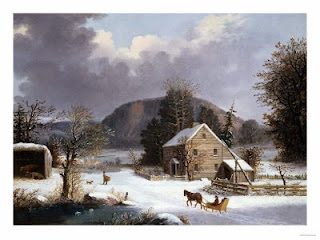 |
New England Road
Mary Cassatt
source |
It is surmised that Wharton’s own discontented marriage was the model for Frome’s, communicating the helpless imprisoned feeling of a relationship all but dead through apathy and selfishness of the two participants. Wharton uses the frigid bleakness of the Starkfield winter in her story to communicate the same desolation that permeates the characters and their situations in life. No one can escape their fate.
Did I enjoy this book? Well, yes, in a way ………. Wharton is a good writer and I doubt that she could craft a bad story. However this story, while compelling, lacked the maturity of her better known novels. She tended to rely too much on drama to carry the story off, instead of working more within the characters, instilling subtleties that would speak to the reader on a deeper level. As for the frame story, this aspect of the book reminded me of Wuthering Heights, and I still haven’t met an author who can employ this device with capable proficiency. I know it’s supposed to allow the writer more leeway in the way he/she presents the story, but in my experience it merely tends to weaken it. Ethan Frome was a fine effort by Wharton but perhaps clouded with a little too much personal emotion to allow her the distance needed to craft a superior novel.
Other Wharton books reviewed here: The Age of Innocence


